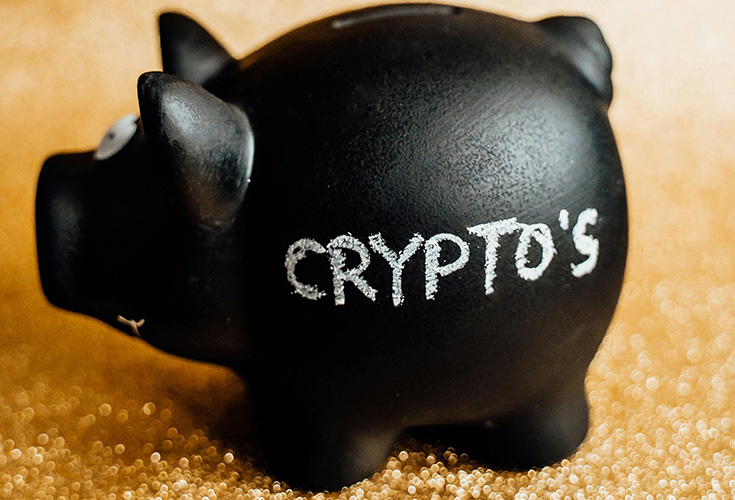
Bitcoin enthusiasts need BTC wallets for trading and holding. These wallets differ in addresses that come in several forms. Typically, they consist of a string of 26–35 alphanumeric characters. The launch of the Bitcoin Lightning Network has created convenience for users. It enables them to create an attractive BTC address that looks like a web domain or email.
However, another method exists to create Bitcoin addresses in human-readable text on the main Bitcoin network. These addresses are called vanity Bitcoin addresses. In this guide, we’ll talk about BTC vanity addresses, the dangers involved, and how to generate them.
Let’s start!
Bitcoin Vanity Address
A BTC vanity address is a personalized Bitcoin address. It also has a string of 26-35 characters made up of numbers and letters. However, A vanity Bitcoin address enables individuals to customize their addresses or even send a specific message just within the address.
A few years after BTC was launched by anonymous creator Satoshi Nakamoto in 2009, Bitcoin vanity addresses gained popularity. The term “vanity address” is derived from the word “vanity,” which is used to boast about oneself or one’s appearance.
Literally, vanity addresses are used by people who want to give their wallet addresses a unique identity. They allow businesses and individuals to show their identity or promote their brand in the BTC space. Released on GitHub in 2012, the first vanity address generator was named “VanityGen” and introduced as an open-source platform.
The Vanity address was first mentioned in 2013 in Bitcointalk.org, a major crypto forum initiated by Nakamoto. These vanity addresses were also available on other networks like Ethereum before BTC. A Bitcoin vanity address comprises 26-35 alphanumeric characters. In contrast, an Ethereum vanity address possesses hexadecimal numbers. Ether addresses can have letters from A to F and numbers from 0 to 9.
How Do You Create A Bitcoin Vanity Address?
There are two ways to create a vanity Bitcoin address. The first technique is manual, while the second involves using a vanity address generator service. The first method requires coding skills and depends on software. According to many BTC experts, the first method is the most secure as it enables users to maintain the confidentiality of their seed phrase.
Additionally, being the sole owner of the seed phrase or private key allows the individual to be the sole holder of the assets associated with the address. The recovery phrase, or seed phrase, consists of random words generated by the crypto wallet. These words allow people to access their stored assets and crypto-wallet if the password is lost.
In the second method, you’ll need to install vanity address-generator software such as VanityGen. You can find it on the cloud-based software platform GitHub. This type of software requires more computer processing power to operate, and larger sequences of symbols take more time to generate vanity addresses.
Different sources indicate that creating a five-symbol vanity address takes an hour on a personal computer. However, if the sequence is larger, such as seven symbols, it might take up to three months. Advanced setups that include application-specific integrated circuit (ASIC) chips or powerful graphics cards can greatly reduce the time required to generate vanity addresses.
The second method of generating addresses is more straightforward but less secure. It includes third-party services called “vanity address miners.” Miners can take control of an address and its assets at any time. The address or private key initially passes through the miners before reaching the user. The private key gets generated during the BTC address creation and remains unchangeable afterward.
Working OF Vanity Address Generator
Websites such as Vanitygen.net frequently provide vanity generation services and charge for generating the desired symbols. It allows individuals to order a string of letters up to eight symbols. After creation, the private key for the vanity address is delivered to the client’s email.
For example, creating a Bitcoin vanity address that starts with “1bitcoin…” costs an estimated 0.0217 BTC. At the time of writing, it costs $550.

However, many characters like “1Nakamoto…” require 0.109 BTC, or about $28,50.

Not all numbers and letters can be included in a vanity BTC address like a general Bitcoin address. Some letters, like the lowercase letter for “L,” the uppercase letter for “I,” the uppercase letter for “O,” and the number “0,” are not present in the set of 26–35 alphanumeric characters of all BTC addresses. The purpose of the exclusion is to help individuals avoid confusion when sending assets on the BTC blockchain.
Risks Of Bitcoin Vanity Addresses
Identity Exposure
The key risk linked with vanity BTC addresses is their potential to reveal your true identity. Senders and receivers on a typical blockchain only use their wallet addresses for transactions. These addresses contain strings of random characters, so no one can access personal information just by looking at them.
While there are ways to identify a person by their wallet address. They are not easy and quick processes. However, adding a personal phrase or word to the beginning of your address increases the chances of being identified. Moreover, cybercriminals can easily access your wallet and assets through a vanity address. For high-profile crypto traders, using a vanity address might result in substantial financial losses.
Misdirected Transactions
Your vanity address may be similar to others. Therefore, funds can be transferred to the wrong wallet by mistake. It causes a major hit when sending large amounts because BTC transactions cannot be reversed. A malicious actor creates a fake address similar to that of an investor who has substantial assets, hoping to misdirect transactions.
Suspicious Generators
Notably, the vanity address generator site may store some sensitive data, such as a wallet’s private key, when you use the automatic generator. You don’t have to reveal it to the site or anyone. Users employ private keys to authenticate transactions. Hackers can extract BTC from your wallet if they have your private key.
Have Vanity Addresses Experienced Hacks?
Unfortunately, yes. A crypto investor lost almost one million dollars in the vanity address hack in September 2022. According to the PeckShield alert, this led to a loss of 732 Ethereum (worth $950,000 at the time).
Additionally, hackers used vanity addresses in March 2023 to steal $500,000 worth of Arbitrum’s airdrop tokens.
The Future Of Bitcoin Vanity Addresses
The popularity of BTC vanity addresses has declined significantly since 2011. However, there is no evidence of their disuse in recent times. A recent report detailed the utilization of a Bitcoin vanity address that included profane language seemingly targeted at Russia’s President, Vladimir Putin. Between 2018 and 2020, the address made 67 transactions, totaling 0.29 BTC ($7,595), eventually reducing its balance to zero.
In a recent transaction, the address sent 0.0004 BTC ($10) to the public BTC address of renowned Bitcoin critic Warren Buffet.
Moreover, challenges and concerns remain. For example, the security concerns related to vanity address generators need attention, leading to the creation of safer and easier-to-use tools. As blockchain systems evolve and integrate new features, the process of creating vanity addresses could become more streamlined and accessible to a broader range of users.
However, the privacy concerns raised by the reuse of addresses will continue to be an important consideration. Hence, individuals desiring customized addresses must assess the benefits of uniqueness in comparison to potential privacy vulnerabilities.
Final Thoughts
BTC vanity addresses allow businesses and individuals to customize their BTC transactions and promote their brand within the crypto industry. There are different ways to generate vanity addresses, each with its own advantages and concerns. Overall, you should prioritize privacy and security. You can lose all your funds in the struggle with vanity addresses to stand out in the industry.








